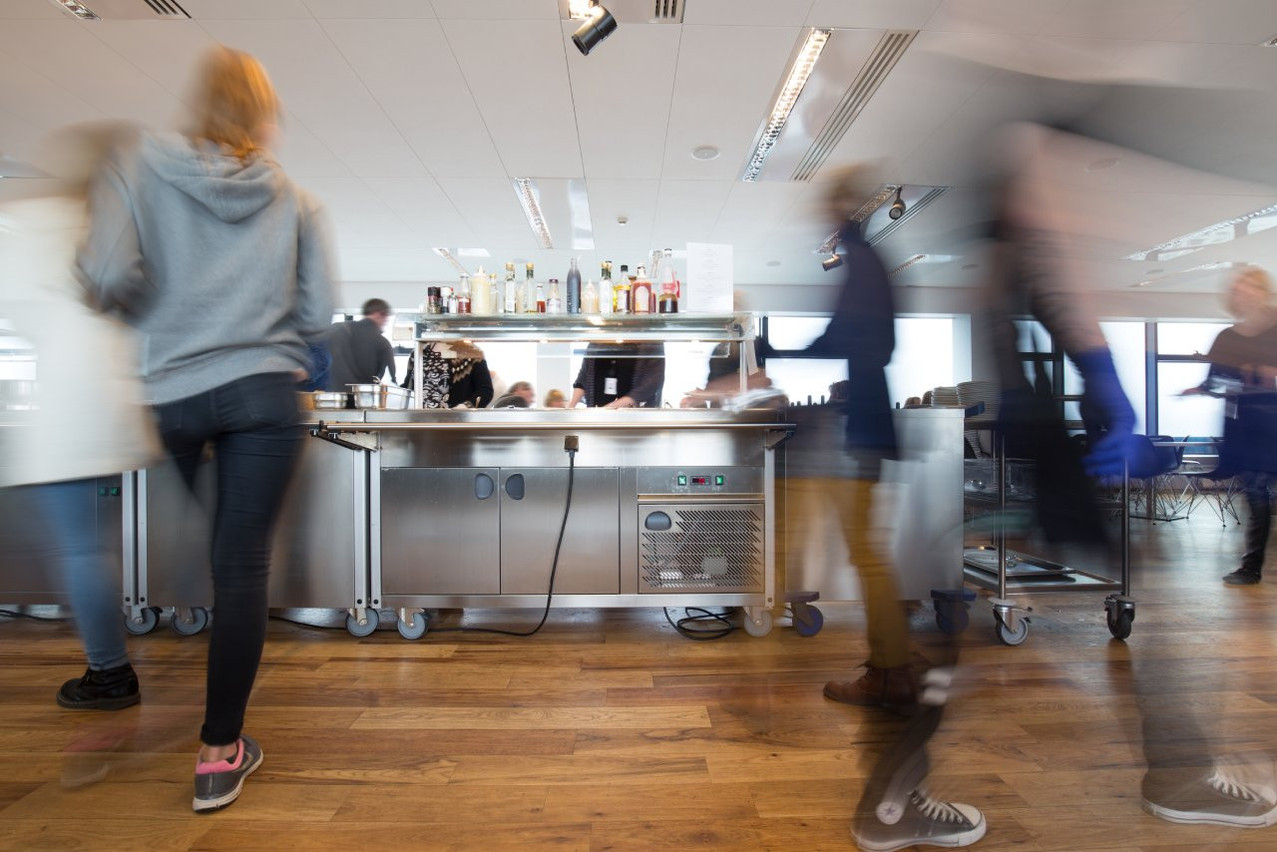For a long time, company catering had an “unattractive” image, according Thomas Didier, head of operations for Compass Group Luxembourg, which owns major local caterer Eurest. But this image is improving, he continues, citing how his company has been able to capitalise on changing consumer demands. Namely, by offering fresh and local produce.
“Before the pandemic, there was a lot of talk about organic food--Gen Z, in particular, was particularly attached to it,” Didier explains. “But after the pandemic, the emphasis was on local produce.” Sourcing organic food remains important, but now the company does in a more “reasonable” way. “We used to have organic food that came from the other side of the world. Or we had MSC-certified fish caught in the Atlantic but that we sent to China for processing before getting it back. We’ve stopped all that.”
The covid-19 pandemic accelerated changes in consumer demands but also the reactivity of caterers: “One day [of teleworking per week] means 20% less business,” Didier points out. “To make up for this loss, we had to find operational and HR agility for our resources as well as new sources of growth.”
According to the head of operations, the movement is well underway: the office canteen is becoming a thing of the past as employers are using responsible and sustainable catering to satisfy their workers and tempt candidates, particularly those in Gen Z. “In the past,” he says, “there were a few forerunners like Ferrero or PWC, but it was sporadic. Only a few companies were visionaries. Now, however, we feel that the step has been taken everywhere.”
Case study
In May 2020, engineering firm Schroeder & Associés moved from Luxembourg City to the Kockelscheuer. A prerequisite for the new site was a company restaurant, given that the new location was no longer central. The result: Saveurs, which offers three menus (including one vegetarian) every day alongside a salad bar and cold dishes.
Originally, the engineering firm had asked Architecture & Urbanisme 21, the building designer, to create a canteen that could accommodate all-staff meetings. “But we asked ourselves: what’s the point, if we only hold one or two of those per year?” comments , managing director of Schroeder & Associés. “We rethought things with the ambition of making it a meeting place but also a restaurant.” They even hired Sandra Leidner Conceptstudio, a firm specialising in restaurant design, to take over that part of the project.
The staff delegation was involved in choosing the caterer for the restaurant, and landed on äResto, which has some 250 employees and is owned by hotel group Concept+Partners. “They’re little more expensive than other service providers, but we looked at quality rather than price,” says Flies.
The restaurant’s auspicious opening during the first wave of covid-19 turned out to be a good thing, the managing partner adds: “It worked well because people were tired of having to stay home and being unable eat out. Some came [to work] especially to eat [at Saveurs].” Nowadays it is open all day--although alcohol is banned before 4:00pm--and serves lunch between 11:30am and 2:00pm.

Some 450 employees work at Schroeder & Associés, whose restaurant Saveurs--pictured--opened in 2020. Photo: Schroeder & Associés
Saveurs has significantly affected the rhythm of employees, says Flies, notably because of its role in the decision to reduce from one hour to 30 minutes. “The reason being that nobody loses time getting their lunch anymore.”
“Employees like it,” he suggests. “It means they can go home half an hour earlier.”
Meal vouchers have also been discontinued at the firm, as an incentive to encourage exchanges between employees, says Flies. “[The restaurant] is a way of breaking down silos and getting the different units to communicate with each other. If we know each other well in private, we work well together.”
Fresh from the vending machine
To the classical office meet-up points--water cooler and coffee machine--we might now add connected fridge. It works like a self-service vending machine, only that a chip inside enables the service provider to manage the stocks in real time.
The question still remains: what to put in it? Anthony Piccininno, general manager and cofounder of the startup Bright Canteen--launched just weeks ago--has some ideas. The company offers organic foods sourced “mainly” from France and Luxembourg and from the nearest SMEs. “Not everything is near us,” concedes Piccininno, “so we also turn to organic food manufacturers--but these remain SMEs, not multinationals.”
Instead of refreshments from any drinks giants based in Atlanta, therefore, you might instead find--if your fridge is stocked by Bright Canteen--a lemonade that’s low in sugar and without sweeteners or additives.
“In lots of places, there’s a need for easy, accessible catering with a layer of quality. We want to be a source of ideas and we see ourselves as messengers of good eating and a healthy lifestyle,” says Piccininno.
This article in Paperjam. It has been translated and edited for Delano.
